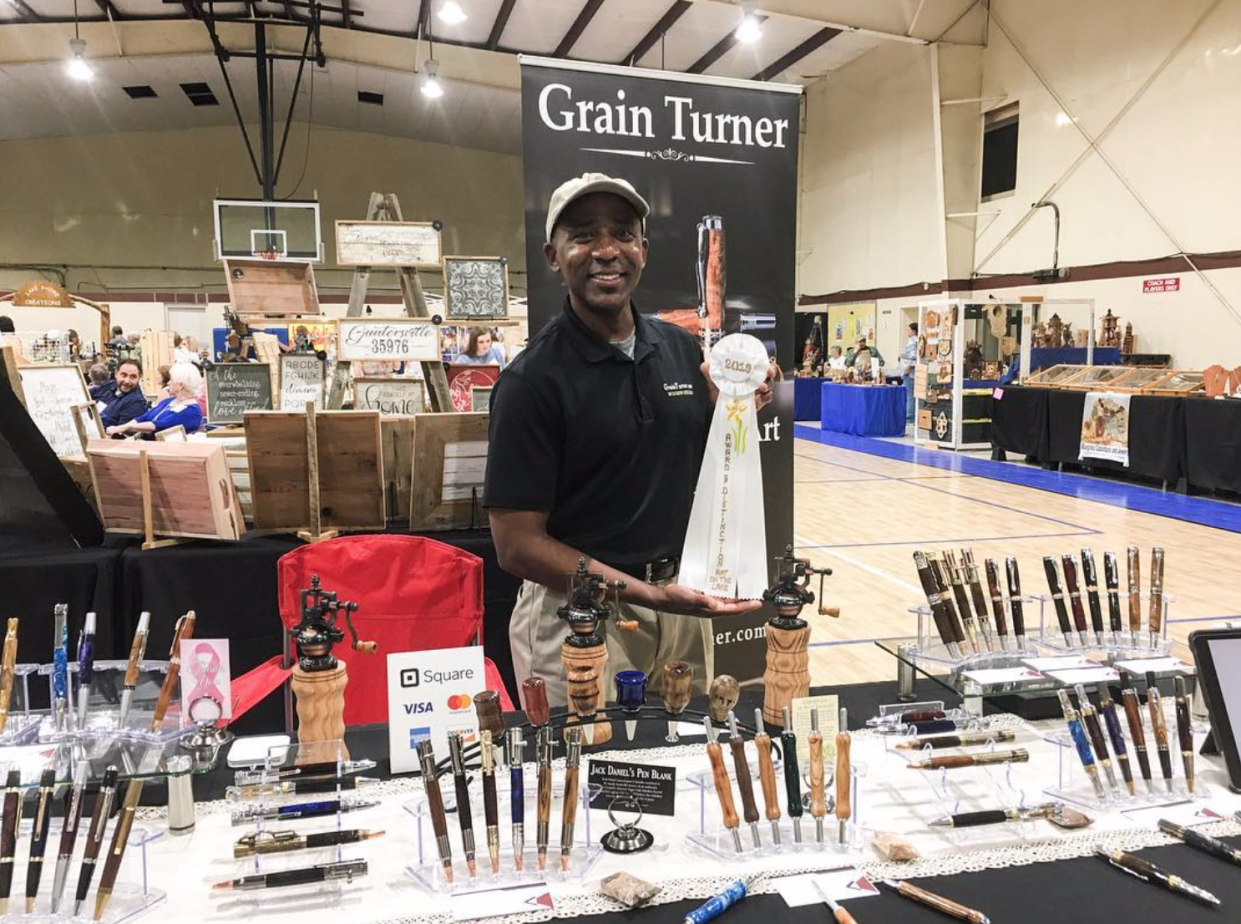Meet the Alabama Woodworker Behind the South's Most Heirloom-Worthy Pens

Courtesy of Cary Bone
Cary Bone comes by his love of woodworking honestly.
"I grew up on a "mini farm," by today's standards," says Bone. "And all the homes on our farm were built by my uncles and grandfather. It's kind of been in the blood."
A few years ago, the New Market, Alabama, native decided to embrace his inherited love of woodworking in a more serious way, crafting pieces like cutting boards and workbenches. But when his own workbench fell on his right foot, breaking all five of his toes, Bone needed a hobby that wouldn't require as much mobility. So he bought a lathe (a small machine made for shaping wood) and started turning pens.
"I've always loved pens," he says. "But I'd never really had the resources to buy the name-brand pens like the Montblancs or the Pelikans." By the time he had discretionary income that could've funded his pen habit, he laughs, he and his wife also had a baby. Fancy writing instruments took a backseat to diapers.
Now, there's no need for him to buy a Montblanc or a Pelikan. Bone's own pens are equally heirloom-worthy, meticulously crafted in his North Alabama workshop from salvaged hardwoods and custom-poured resins.
"I started to build a little inventory, and my wife called me out," says Bone. "She said, 'Babe, you're starting to turn into a pen hoarder. We've got to do something about this.'"
So he took his first pieces to an area artists' market and found they were well-received. A few markets later, and Bone realized his success wasn't just a fluke. He made something special, and people liked it. And that's how Grain Turner Wood & Resin Art was born.
His collection now includes seam rippers, antique-style pepper mills, and bottle stoppers—each crafted with the same extraordinary precision and care he applies to his ballpoint, rollerball, and fountain pens.
Turning the pens can take anywhere from one to three hours, and for the Grain Turner himself, it's a meditative experience.
"Being a country boy, when I was growing up, I found that hunting, fishing, ATV-riding, canoeing were the activities and hobbies that I could engage in to relax a bit," says Bone. "I'm not thinking about anything else in the world except for keeping that canoe tracking straight, or cutting a straight line if I was mowing my lawn, or making sure that my cast was perfect if I was fishing. Turning is the same way. I'm trying to make sure that the presentation of the chisels to the materials is at the correct angle; that I'm moving left to right in a consistent speed; that the touch is not too heavy, not too light, just right. I'm dialed in."
It's for this focused attention to detail and care for materials that Bone has become known in his community. One of his favorite commissions to date came from a coworker and retired Navy officer, who asked him to make a pen with teak wood from the deck of the USS Chester CA-27, a decommissioned World War II-era cruiser.
"When he presented me with the wood, whew! You talk about the stress," says Bone. "Not because I didn't think I could do it…but if for some reason, I messed this up, this is history. And I've got one shot to get it right."
He got it right, crafting two beautiful, practical totems of history.
But even when the stakes aren't quite so historically significant, Bone's commitment to the "pure" way of woodworking is consistent.
"At the end of the day, my motto is kind of simple," he says. "If the product doesn't meet my standards, it doesn't leave my shop. That's what I try to live by in everything I create."
Shop his pens, pepper mills, and seam rippers here; or sneak a behind-the-scenes peek at his process on his YouTube channel.

